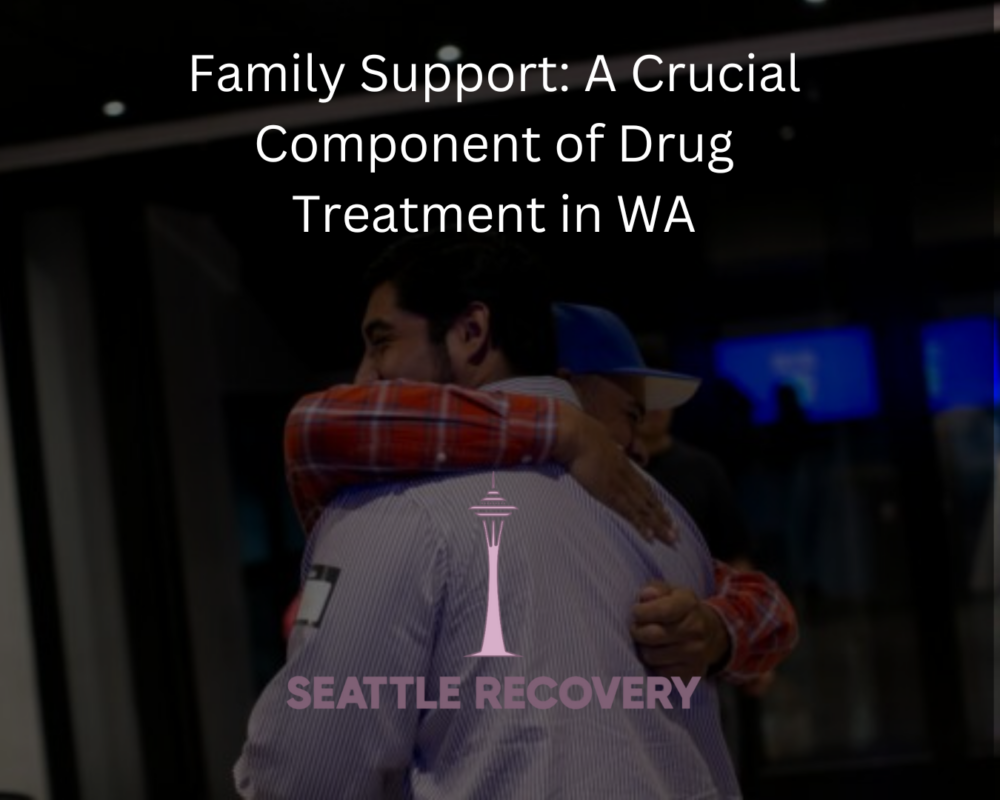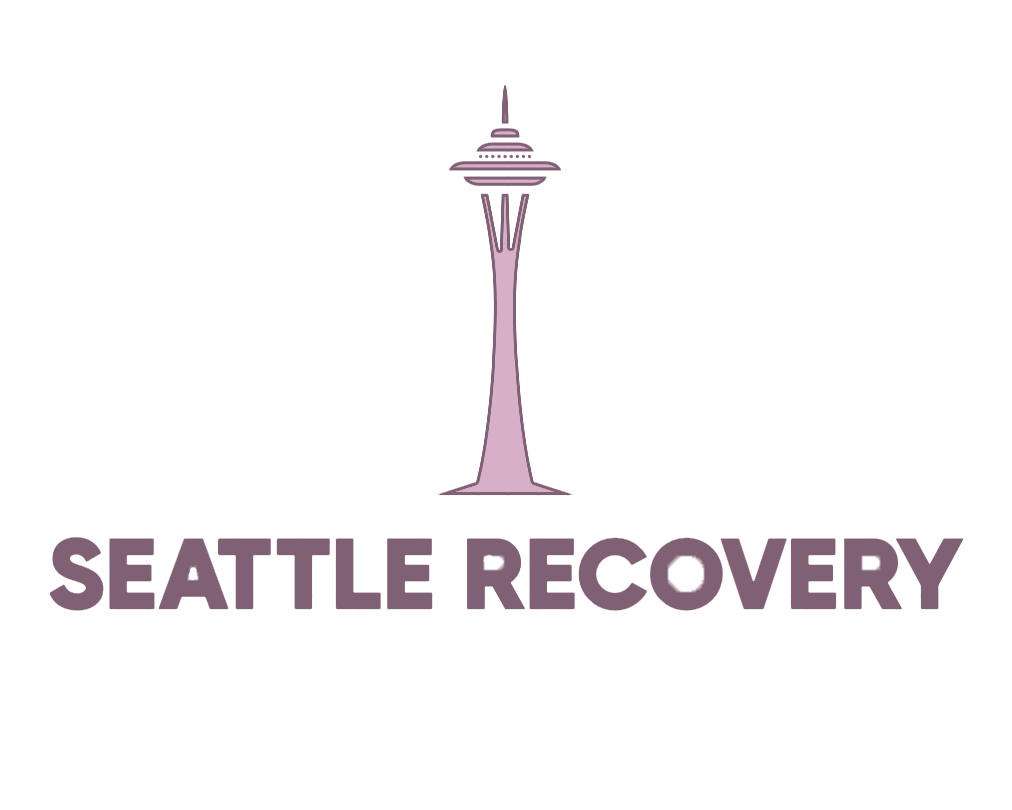Dealing with substance abuse is challenging enough on its own, but many individuals also face concurrent mental health disorders that complicate recovery. This is why dual diagnosis treatment is crucial for comprehensive healing. If you’re searching for drug treatment in WA, Seattle Recovery offers specialized dual diagnosis programs designed to address both addiction and mental health issues simultaneously. Our experienced team of professionals utilizes evidence-based therapies and personalized treatment plans to help individuals achieve recovery and maintain long-term sobriety. We understand the unique challenges that come with dual diagnosis, and our programs are tailored to provide support and resources for those struggling with co-occurring disorders. By addressing both addiction and mental health together, we aim to provide a more holistic approach to treatment that leads to lasting healing and improved overall well-being.
In addition to our dual diagnosis treatment programs, Seattle Recovery also offers a range of other services to support individuals on their journey towards recovery. Our comprehensive approach includes medical detoxification, individual therapy, group counseling, family therapy, and aftercare planning. We recognize that each individual’s journey towards recovery is unique, and therefore our treatment plans are tailored to meet the specific needs of each person. Our team works closely with clients to develop a personalized plan that addresses their addiction as well as any underlying mental health issues.
At Seattle Recovery, we also prioritize ongoing support and resources for our clients after they complete our programs. We believe that lasting recovery requires continued care and guidance. That’s why we offer aftercare planning services and connect individuals with local support groups and resources to ensure a smooth transition back into daily life. Our goal is to provide not only treatment but also the tools and strategies necessary for long-term success.
Understanding Dual Diagnosis
Dual diagnosis, also known as co-occurring disorders, refers to the simultaneous presence of a mental health disorder and a substance use disorder. This is a common occurrence as individuals struggling with addiction often have underlying mental health issues that contribute to their substance abuse. Some common mental health disorders that co-occur with addiction include depression, anxiety, bipolar disorder, and PTSD.
In order for treatment to be successful, it’s crucial to address both the addiction and the accompanying mental health disorder(s). If left untreated, these conditions can exacerbate each other and hinder recovery efforts. For example, an individual with depression may turn to drugs or alcohol as a form of self-medication, leading to further substance abuse and worsening of their mental health. On the other hand, substance abuse can also trigger or worsen preexisting mental health issues.
At Seattle Recovery, we recognize the importance of addressing both addiction and mental health in order to achieve lasting recovery. Our dual diagnosis treatment programs are designed to provide comprehensive care for individuals struggling with co-occurring disorders. We utilize evidence-based therapies and personalized drug treatment in WA plans to address the unique needs and challenges of each client. By taking a holistic approach to treatment, we aim to improve overall well-being and promote long-term success in recovery.
Why Dual Diagnosis Treatment Matters
Dual diagnosis treatment is crucial for individuals struggling with both addiction and mental health disorders. By addressing both issues simultaneously, it allows for a more comprehensive approach to healing and ultimately leads to improved outcomes in recovery. Without treating the underlying mental health conditions that contribute to substance abuse, individuals may continue to struggle with addiction even after completing a traditional program for drug treatment in WA. This can lead to relapse and an ongoing cycle of substance abuse.
Moreover, without addressing mental health issues, individuals may not be able to fully address the root causes of their addiction and develop healthy coping strategies for managing their emotions and behaviors. This is why dual diagnosis treatment is vital as it provides support and resources for both addiction and mental health concerns. It also helps individuals to better understand the relationship between their addiction and mental health, allowing them to make positive changes and maintain long-term sobriety. Overall, dual diagnosis treatment offers a more holistic approach to recovery that addresses all aspects of an individual’s well-being. With specialized support and tailored treatment plans, individuals can overcome co-occurring disorders and achieve lasting healing and recovery. At Seattle Recovery, we are committed to providing comprehensive care for those struggling with addiction and mental health issues, helping them on their journey towards a healthier, happier life.
1. Comprehensive Care Approach
In traditional rehab settings, treatment often focuses solely on addiction. However, dual diagnosis treatment recognizes the intertwined nature of mental health and substance use disorders. By addressing both, we can uncover the root causes of addiction and provide holistic care that fosters lasting recovery.
2. Personalized Drug Treatment in WA Plans
No two individuals are the same, and neither are their treatment needs. At Seattle Recovery, our experienced clinicians tailor treatment plans to each individual’s unique circumstances, ensuring that both their substance use and mental health disorders are treated concurrently. This personalized approach increases the likelihood of sustained recovery.
3. Enhanced Coping Strategies
Mental health disorders often contribute to substance use as a means of coping with symptoms. Dual diagnosis treatment equips individuals with healthier coping mechanisms and life skills that they can use instead of turning to drugs or alcohol.
4. Preventing Relapse
By addressing both addiction and mental health disorders, dual diagnosis treatment minimizes the risk of relapse. Patients learn to manage their mental health symptoms, reducing the likelihood of turning to substance use as a coping strategy. Additionally, with ongoing support after treatment, individuals can continue to receive the resources and guidance they need for sustained recovery.
What to Expect from Seattle Recovery’s Dual Diagnosis Program
Seattle Recovery’s dual diagnosis program offers a range of services and therapies tailored to meet the needs of our patients. Here’s what you can expect:
1. Comprehensive Assessment
Upon admission, each patient undergoes a thorough assessment to identify both substance use and mental health issues. This ensures that the treatment plan is comprehensive and addresses all aspects of the individual’s health.
2. Integrated Treatment
Our drug treatment programs in WA integrate evidence-based therapies for both addiction and mental health disorders. This includes cognitive-behavioral therapy (CBT), dialectical behavior therapy (DBT), medication management, and group therapy sessions.
3. A Supportive Environment
Recovery is a marathon, not a sprint. At Seattle Recovery, we foster a supportive and nurturing environment where patients feel safe to explore the underlying issues contributing to their dual diagnosis. Our compassionate staff is dedicated to helping individuals reclaim their lives and achieve long-term sobriety.
4. Family Involvement
Addiction and mental health issues affect not only the individual but also their loved ones. Our dual diagnosis program includes family therapy sessions to help mend relationships and create a support system that encourages recovery.
The Impact of Dual Diagnosis on Recovery
The benefits of dual diagnosis treatment extend beyond the individual to their relationships and quality of life. Here’s how it can make a difference:
- Improved Mental Health
By treating underlying mental health disorders, individuals experience an improvement in their overall mental well-being. This allows them to better manage their emotions and behaviors, leading to a greater sense of stability and control in their daily lives. Additionally, addressing mental health concerns can reduce the need for self-medication through substances, as individuals no longer feel the need to cope with their symptoms through drug or alcohol use. This not only promotes long-term recovery but also leads to a better quality of life for individuals struggling with co-occurring disorders.
Moreover, treating mental health issues can also improve relationships and social interactions. When individuals are able to effectively manage their mental health symptoms, they may have a more positive outlook on life and be more present in their relationships. This can lead to stronger connections with loved ones and a more fulfilling social life.
- Increased Self-Awareness
write a long paragraph about “Dual diagnosis treatment also fosters self-awareness by helping individuals understand the relationship between their mental health and addiction. This awareness allows them to identify triggers, unhealthy coping mechanisms, and patterns of behavior that contribute to their co-occurring disorders.”
Through therapy and education, dual diagnosis treatment helps individuals gain a deeper understanding of their addiction and mental health concerns. They learn to recognize how these two issues are connected and how each one affects the other. This level of self-awareness is crucial for developing healthy coping strategies and making positive changes in their lives.
By understanding the underlying issues contributing to their co-occurring disorders, individuals can also develop strategies for managing their symptoms and reducing the risk of relapse. This self-awareness and ability to recognize triggers and warning signs empowers individuals to take control of their recovery journey.
- Long-Term Recovery
Dual diagnosis treatment not only addresses immediate concerns but also sets individuals up for long-term success. By providing a comprehensive approach that considers both addiction and mental health, it equips individuals with the tools they need to maintain sobriety and manage their mental health over time. With ongoing support from therapists, peer groups, and loved ones, individuals in dual diagnosis treatment have a higher chance of achieving and maintaining long-term recovery.
- Stronger Family Bonds
The effects of addiction and mental health disorders are not limited to the individual, but can also strain relationships with loved ones. Family therapy sessions in dual diagnosis treatment allow for open communication and a better understanding of each member’s experiences and struggles. This can help repair any damage caused by the individual’s co-occurring disorders and create a network of support for their recovery journey.
By involving family members in the treatment process, they also learn ways to support their loved one in maintaining their sobriety and managing their mental health. This creates a stronger bond between family members and promotes a healthier dynamic within the family unit.
- Greater Chances of Long-Term Sobriety
write a long paragraph about “Dual diagnosis treatment offers individuals the tools they need to manage both addiction and mental health disorders effectively. This empowers them to lead fulfilling lives free from the grip of substance use.”By addressing both addiction and mental health, dual diagnosis treatment provides individuals with the necessary skills to manage their disorders and maintain long-term sobriety. This includes learning healthy coping strategies, developing a support network, and creating a relapse prevention plan. With these tools in place, individuals are better equipped to face challenges and triggers that may arise in their recovery journey.
Moreover, by treating co-occurring disorders simultaneously rather than separately, individuals have a greater chance of achieving true healing. By understanding the connection between their addiction and mental health, they can address underlying issues that contribute to both and break free from the cycle of substance use.
Choosing the Right Drug Treatment in WA
If you or a loved one is seeking drug treatment in WA, it’s essential to choose a facility that offers dual diagnosis programs. Seattle Recovery is committed to providing comprehensive care that addresses both addiction and mental health disorders. Our experienced team is dedicated to helping individuals build a foundation for lasting recovery.
- How to Get Started
Ready to take the first step toward healing? Contact Seattle Recovery today to learn more about our dual diagnosis program and how we can help you achieve a brighter future. Our team is here to support you every step of the way.
Reach Out to Us Today
Dual diagnosis treatment is a vital component of successful recovery, particularly for individuals facing both addiction and mental health disorders. By choosing drug treatment in WA at Seattle Recovery, you are prioritizing comprehensive care that addresses the root causes of addiction. Our personalized and integrated approach empowers individuals to reclaim their lives and achieve lasting sobriety.
Take the first step toward a healthier future today. Reach out to Seattle Recovery and discover how our dual diagnosis program can make a difference in your recovery journey. When looking for drug treatment in WA, look toward us at Seattle Recovery. We are here to help you or your loved one get your life back. Give us a call at (206) 231-0252 or visit our website today at www.seattlerecovery.org.








